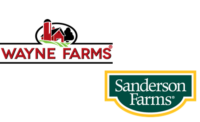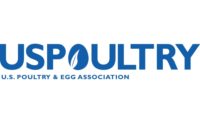Industry safety professionals recently gathered in Destin, Fla., for the National Safety Conference for the Poultry Industry. Industry experts discussed proactive measures for employee and community safety, among a variety of other topics. The conference is sponsored by the Georgia Tech Research Institute/ATRP and U.S. Poultry & Egg Association.
Henry Miller, risk consultant manager at Allied Universal, discussed company policies versus state laws as part of his presentation on Access Control / Security. Miller emphasized knowing federal, state and local laws, knowing one's company’s policies and company’s emergency response plans, knowing one's own capabilities and limitations, raising one's awareness and improving their own decision making, respecting the opinions of others and adhering to organizational policies, and contributing to a positive work environment that is driving toward the ultimate goal of safety.
Matt Spencer, USPOULTRY’s vice president of HR & safety programs, discussed the Occupational Safety and Health Administration’s Process Safety Management and the Environmental Protection Agency’s Risk Management Plan standards for cryogenic chemicals. Requirements of each were outlined, as well as the distinctions between the standards. Spencer noted that USPOULTRY now offers an “Accident Prevention and Response for Cryogenic Chemicals” resource and further explained measures that can be taken to ensure safety while working with cryogenic chemicals. In addition, emergency planning and partnerships with local emergency personnel were explored.
An occupational health panel, focusing on onboarding, community health and stress management, was moderated by Michelle Jones, workers’ compensation manager for Butterball, and included Mary Fletcher, senior director of occupational health, Tyson Foods, Kacie Poole, corporate manager of occupational health and nursing, Simmons Foods, and Mike Redmond, regional occupational health manager, Wayne-Sanderson Farms. Several strategies for improving employee and community health were shared, including ergonomics and stretching being presented during onboarding, partnering with local first responders and health providers to address community needs, providing a rotating monthly health emphasis for employees, and having resources that can be offered to employees to assist with life events.
Dr. David Schaller, director of safety and policy at Darling Ingredients, provided a practical guide for safe boiler operations. He noted several key things to examine to ensure that boilers are operating within safe limits, including the physical condition of the boiler, temperature readings, water levels, flame condition and boiler component operation. Dr. Schaller also shared best practices for adding water, completing repairs and how the boiler room should be equipped. He concluded with an examination of a boiler accident, allowing attendees to see where issues can arise.
Source: U.S. Poultry & Egg Association




Report Abusive Comment